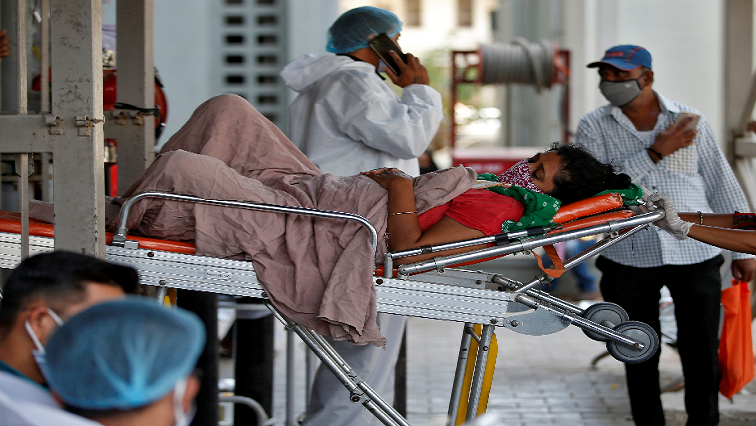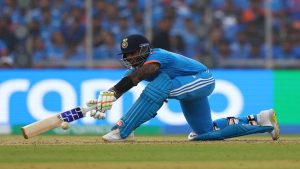Implementing stay-at-home mandates, as well as mask-wearing and social distance policies, are the most important measures India and Nepal can take now to stymie their worsening COVID-19 situations, said a US doctor on Saturday.
Facing overburdened medical systems and supply shortages, the two countries have been struggling with surging coronavirus-related infections and deaths caused by recent outbreaks.
Official data released on Saturday shows that India has seen more than 400 000 new daily confirmed cases for three straight days, while the daily death toll exceeded the grim 4 000 mark for the first time. The country’s COVID-19 tally passed 21 million with over 238 000 deaths.
Meanwhile, Nepal is also seeing surging infections and deaths. The country on Saturday reported over 8 000 new infections and 54 new deaths from the disease.
Speaking in an interview with China Global Television Network, Megan Ranney, an emergency physician and associate professor at Brown University, pointed out that Nepal’s geographical location and reliance on India for supplies has added to its difficulties in combating COVID-19.
“The first is that, like most of the world, the majority of the population is not yet vaccinated. And we know we have 15, 16 months of evidence that when folks are not vaccinated, this virus spreads like wildfire. The second problem, as you said, is that Nepal has limited access to medications, to critical supplies like personal protective equipment, masks, gowns, gloves to protect the medical workers, or that incredibly important equipment, things like oxygen cylinders, sure, but also all of the other medical equipment that we use to take care of critically ill patients.”
“They have limited access to that even in normal times, because as you say, Nepal is landlocked. All of their supplies and medications have to go through India, and right now India is hanging on to everything it can keep,” she said.
Unpacking rising COVID-19 cases in India with Dr. Anant Bhan:
The number of deaths from the virus may be unnecessarily high in India because of the country’s overburdened medical system, she noted.
“The last part is that we know that when the virus spreads unchecked, when health care systems get overwhelmed, that’s when the mortality rate from this virus surges. It is a horrible virus even in a functioning health care system, but when you get overwhelmed, you can no longer provide that basic lifesaving care and folks are going to be more likely to die,” said Ranney.
A false sense of security in India over the past few months led many Indians to ignore restrictions and preventative measures. Some large-scale festivals were even held across the country, offering the perfect conditions to create superspreader events.
Ranney said that for India, the first and most important step is to stop the transmission of the virus, as vaccinations need time to take effect.
“Yes, we need to vaccinate and every country in the world has to help vaccinate India but also other countries, right? But vaccines are not going to be an immediate fix. If people get vaccines in arms today, they’re not going to be protected for somewhere between two and six weeks, depending on what type of vaccine they get,” explained the doctor.
“So what India needs to do today is to put policies in place for people to stay home, wear masks on those essential outdoor excursions to get groceries or to buy essential medications, and to shore up their medical system so that they can take care of the people who are already sick. People are dying unnecessarily because there are insufficient physicians, nurses, oxygen, personal protective equipment, and so on. And that’s something the government can do today,” she said.
Regarding the “double mutate” variant, which is becoming the most prevalent among all the mutant COVID-19 variants in India, Ranney noted that vaccinations and non-pharmaceutical interventions like keeping socially distant and wearing masks are important methods to curb the spread of the virus.






